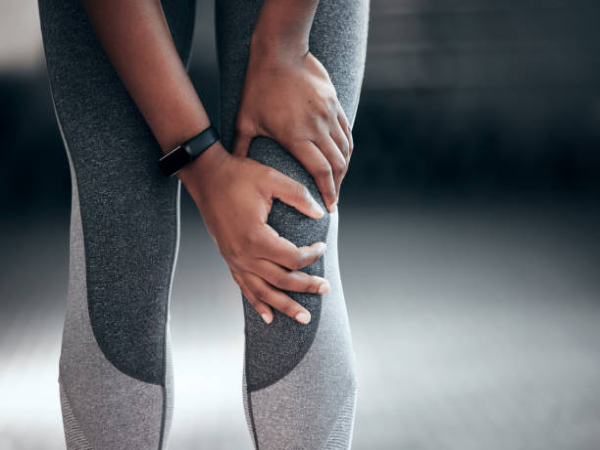Joint stiffness is a common issue that affects many people, regardless of age. Athletes, in particular, often face this challenge due to the physical demands of their sport. Dr. Angelique Coetzee discussed the prevalence of joint stiffness and its potential long-term impact, especially for those involved in physically intensive careers like rugby, soccer, athletics or cricket.
“When we look at young athletes, such as rugby, soccer, and cricket players, most are in their early 30s, and some might even continue until their 40s. But I always wonder what will happen to them once they hit 55 and beyond,” she said, acknowledging that joint stiffness becomes a serious concern as athletes age.
Coetzee explained that joint stiffness refers to the discomfort or difficulty experienced when trying to move a joint. “It might feel as though the joint is harder to bend or straighten than usual. The movement can be painful, especially in the morning or when it’s cold,” she said.
Stiffness can also occur after periods of inactivity, such as sitting for long stretches, which makes it especially noticeable as people age. “When you wake up in the morning or after sitting for a while, you might feel as if you’re moving like an elderly person, but that’s unfortunately a reality for many,” she added. Stiffness can be temporary or chronic, depending on its underlying cause.
Common causes of joint stiffness include conditions like osteoarthritis and rheumatoid arthritis, injuries such as sprains, strains, or trauma, as well as age-related changes and infections like septic arthritis. Autoimmune disorders and viral infections can also contribute to joint stiffness.
For athletes, especially those in the early stages of their careers, Coetzee emphasized the importance of proper care to prevent long-term discomfort. “The first thing I would say is to get a very good trainer and coach. They need to know what they are doing, and you need a skilled physiotherapist,” she advised. “I’m also open to acupuncture. You need a good team, especially if you’re playing professionally. It’s important to listen to your healthcare professionals and take their advice seriously.”
Coetzee highlighted that while exercise can help maintain joint flexibility and reduce stiffness, overusing the joints can lead to further complications. “We know that regular physical activity helps keep our joints flexible but overdoing it can damage them. If a professional tells you to back off or suggests other treatments like physiotherapy or acupuncture, listen to them. Ignoring this advice will only worsen your joint health as you get older.”
In addition to professional care, Coetzee stressed the importance of maintaining a healthy weight to reduce stress on the joints. “You need to be mindful of your weight, as it directly affects your joints and can create pressure points,” she explained. She also recommended supplements like omega-3s and other nutrients to support joint health. “There are also foods and supplements that can help; you just need to make sure you’re eating the right things and avoiding what could harm your joints.”
By taking preventive steps, including proper training, holistic care, and maintaining a healthy lifestyle, athletes can protect their joints and minimize the risk of long-term stiffness and pain
VOC News
Photo: Pixabay









